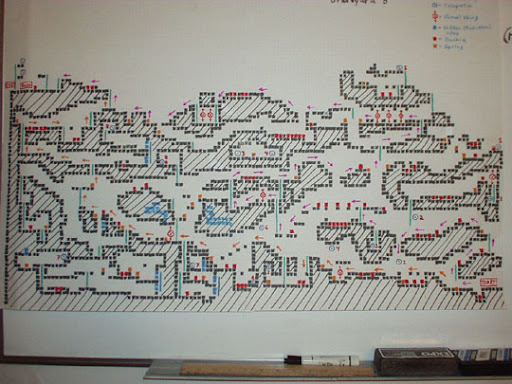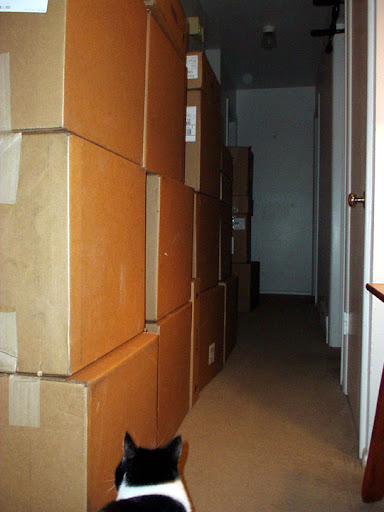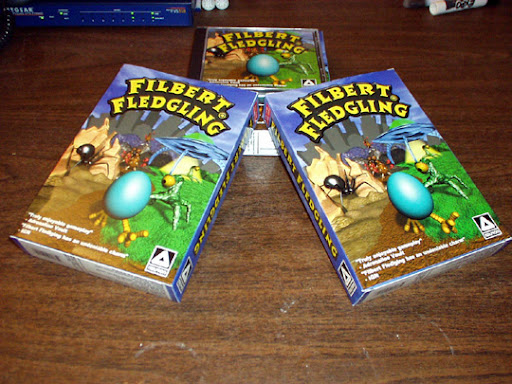Trending
Opinion: How will Project 2025 impact game developers?
The Heritage Foundation's manifesto for the possible next administration could do great harm to many, including large portions of the game development community.
Final part of the postmortem of Filbert Fledgling.

I hope to keep this final part of the postmortem to a minimum, but I am afraid there were so many things that went wrong it may be difficult.
To start things off, there were only three people on this project. So it will be impossible not to talk about what went wrong without directly implicating individuals. That being said, I will only implicate myself directly and refer to others as partner or audio engineer. If you really want to find out who these people are, you should buy a copy of Filbert Fledgling. You can figure out who did what from the credits :)
Right off, we bit off far more than we could chew. We didn’t order a steak that was too big for us to eat, hell no! We bought a whole cow for dinner. Instead of making several or even one small game, we decided to make the largest platform scroller in the world! To our knowledge, it still is. The shortest completion time from a player we have heard of is 23 hours.
One of the reasons Filbert Fledgling was so big was because I didn’t swallow my pride. I was told by several people in the gaming industry that it would be impossible to develop a game and engine from the ground up with only two people in a house. I instantly had my Moby Dick. So in my misplaced anger I set out to develop a game that was bigger and hopefully as good as or better than all other platform scrollers. I was full of myself for sure. Looking back at this, Jazz Jackrabbit II was under development with a crew of 29 in the credits to our 2. 1/2. A similar story can be seen with Monolith’s Captain Claw scrolling game. In any case we decided to build a game where a single level was as large as an entire game.
The start of game design was terribly rocky. I asked my partner to develop the layout of the first level. We can laugh about it now, but he came back with a single sheet of typing paper with four platforms and two ladders. It was clear to me that he had never played a platform scroller before. I guess his concept of a platform game was Hard Hat Mack.
Eventually he got the hang of what we wanted, but it is clear that the levels could have been significantly smaller. Keep in mind that in the image below Filbert is smaller than one black square!
Filbert Graveyard B map
The level editor was written in C with Win32, this was the first thing I would change. As large as it was and with all the capabilities it had, it really should have been written in C++ and DirectX. It would have been much easier to maintain and significantly faster.
The level editor also suffered from feature creep. I implemented far more capabilities into the editor than was ever used in the game. I would have to say that at least 1/3 of all the capabilities of the editor were never used.
Because the level editor was developed using Win32, the graphics were drawn with the GDI. This was a bad decision. It was my thoughts that since the levels would not move or scrolling in the editor that there would not be any need for DirectX or speed. I completely underestimated how slow the GDI system for this sort of task was.
This was the first lesson for me in working with others. I inherently thought that my partner wanted to work as hard on this project as I did. I was ensured on a number of occasions that when I got rolling I wouldn’t have to wait for him, he would push me. I delegated the tile pixie portion of the editor to him. After about a week of absolutely not seeing an executable, code, or even pseudo code, I realized that nothing at all was being done. Instead of working on the game, he decided to take a month off and remodel a wall in his house. Keep in mind that we both just quit our jobs to work on this full time. We were living on nothing but our savings. This is when I threw my first major tantrum. I then quickly sat down and wrote the entire algorithm for it in a lunch hour to prove how long it should have taken. I wish this would have been the last of these issues, but it reoccurred for the entire project. Each week resulted in at least two arguments, maybe more all surrounding lack of productivity. I was expecting too much, and he was doing far too little.
Yet another over engineered part of the level editor. Sprite Pixie had the capability of scripted sequences, event triggered sounds, and multiple bounding boxes for refined collision detection. All of which never got used. Had I just stuck to the basics, the game might have been done much sooner. I not only was planning for Filbert, but ten games past!
Space Station Sketch 00
Space Station Sketch 1
The most major issue of the game engine in my opinion was the breakdown of the cohesion and coupling rules of software engineering. I handed both the menu system and the video cut scene portions off to my partner. Like all the rest of the engine, I wanted these as separate DLL’s so that any changes would not affect the core. Especially the menu system since the engine was planned for reuse. Unfortunately they came back coded in with the core of the engine as a monolithic module. Later on with new graphics cards a few issues with the video system appeared where the videos would only display in ½ the original height. I didn’t even want to go into that code and fix it. Not to mention that the video system was based on the “Direct Show” API; at the time it was a giant kludge. Even the high score portion of the game got coded directly into the core of the engine. This is probably one of the most single frustrating points of the game. We were so far along at that point I just let it go because I knew that I would end up being the one fixing it.
Space Station Sketch 01
Space Station Sketch 2
I had been using 3D Studio for a while at this point, but only the DOS version. I had just received the Windows version when we started this game. Even the original characters for Filbert were ported from the DOS version. I was terribly inexperienced with a lot of techniques especially with lights and shadows. The shadows are far too dark with far too much contrast. Not only that but I had no concept of bounce lighting or reflective lighting conditions. This caused parts of the game to look a little more 2D than I liked.
Another issue that I never thought about was color blind players. Apparently one in four males are color blind. Unfortunately I picked menu colors for selected menu options and none selected that look the same for those people. I had no idea. So they couldn’t navigate the menu. I should have made some sort of visual movement cue.
We got some complaints about the Halloween level being too scary for people’s kids. This is my fault for letting my dark side take over. After all I was quite grumpy and running out of money fast at this point. If I had to do over, I would introduce far more comedy relief and ditch the crying babies in the sound track.
Graveyard and Cave Sketch 00
Originally the audio tracks for the game as well as the sound FX were going to be done by my partner. His parents even forked out several thousands of dollars for a state of the art Kerswell workstation since we were nearly broke. It became apparent later on that the workstation was not going to get used, and the schedule had already slipped a great deal. So I had to bring in a high school era friend and musician from a previous game development project to take that over. This got me about 70% of the music the way I wanted. For the most part the audio is great, but the underwater caverns and the opening cut scene tracks were not what I asked for. Needless to say, I let it go since we had to get the game done before my savings was. We did have some issues with a few voice overs as well that we ended up doing ad hoc ourselves and ditching the originals.
Again because of my ego at the time, to build the best with as little help as possible, we decided to do the production ourselves too. What a psycho I was. Looking back on this it was a crazy idea and left a bad taste in the mouths of game production and distribution companies in the industry that ordinarily might have helped us. We literally went out and landed contracts with Best Buy, and Media Play to have the game on store shelves by Christmas at the very least in the states of Utah and Colorado. We had no idea how any of this worked. It was only after the games were already being pressed to CD’s and in boxes that we got notified that our shelf space had been bought by a major game distributor. We had no idea that there even was such a thing as slotting fees or what they were. It seemed like legalized crime. So we got stuck with the first and only production run of the game sitting in our houses and no shelves to put them on. We had to sell them on the net and by hand. I really should have researched this before jumping in.
Filbert 006

Filbert 016
A lot of the problems experienced during this project were personal. I was too much of a perfectionist that lost sight of making games for fun that were fun and instead focused on proving to the world how much I could accomplish with so little. I was suffering from Captain Ahab syndrome. I also expected everyone to pull in the same amount of weight that I did for equal stakes in the company. I now realize this is a pipe dream too. My partner had never dealt with any form of hardship and always had parents to bail him out in the event of financial trouble, so there was no urgency there. And both of us were far too inexperienced for such a large project, well not anymore :P
I learned that everyone works differently, some not so much, and nobody will work on anything the same way as anyone else. I also learned that some things are better off left to professionals such as distribution. Most of all, I learned not to chase after other games and game development companies but be true to myself and build games that are fun and what I want to play. You shouldn’t worry about what someone else is developing in your market space and never adjust your course with knee jerk reactions from what you see other companies doing.
Did Filbert Fledgling have some problems? Hell yes, probably far more than most projects that get finished even. However, I learned so much from developing this game that I would not be where I am today without it. We never made any significant profit from this game, but it is still a success in my book. I will always wonder how it would have done if we would have got shelf space.
Just remember, sometimes you have to screw things up before you learn what not to do the next time. :)
You can read more and follow me and Neuron Games, Inc. here:![]()
![]()
![]()
![]()
![]()
Read more about:
BlogsYou May Also Like